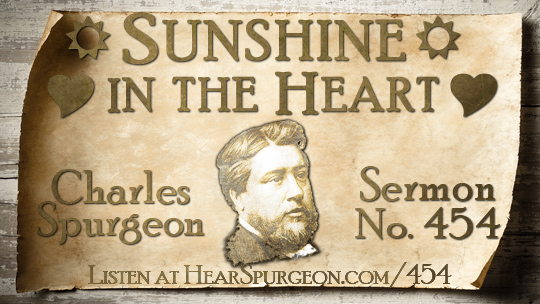Podcast: Download
Subscribe: Apple Podcasts | Spotify | RSS
We are free, for Christ was bound; we live, for Jesus died.
~ C.H.S. ~
“Now if we be dead with Christ, we believe that we shall also live with him: knowing that Christ being raised from the dead dieth no more; death hath no more dominion over him. For in that he died, he died unto sin once: but in that he liveth, he liveth unto God. Likewise reckon ye also yourselves to be dead indeed unto sin, but alive unto God through Jesus Christ our Lord.”—Romans 6:8–11.
Main Points:
1. Gospel facts – 4:02
2. Gospel experience – 25:39
3. Gospel hope – 42:07
The following are select quotes from this sermon.
Please use the comment section below to share your own thoughts regarding this podcast!
Newton has very properly said that the two pillars of our religion are, the work of Christ for us, and his work in us by the Holy Spirit. If you want to find the apostles, you will surely discover them standing between these two pillars; they are either discoursing upon the effect of the passion in our justification, or its equally delightful consequence in our death to the world and our newness of life. What a rebuke this should be to those in modern times who are ever straining after novelties.
Yes, the blessed Substitute has died. I say if there were a question about this, then we might have to die, but inasmuch as he died for us, the believer shall not die. The debt is discharged to the utmost farthing; the account is cleared; the balance is struck; the scales of justice turn in our favour; God’s sword is sheathed for ever, and the blood of Christ has sealed it in its scabbard. We are free, for Christ was bound; we live, for Jesus died.
…when Jesus died a living way was opened. Sing, O heavens, and rejoice O earth! There is now no wall of partition, for Christ has dashed it down! Christ has taken away the gates of death, posts and bars, and all, and like another Samson carried them upon his shoulders far away.
This body shall rise again. ‘Can these dry bones live?” is the question of the unbeliever. “They must live,” is the answer of faith. Oh! let us expect our end with joy, and our resurrection with transport. Jesus was not detained a prisoner, and therefore no worm can keep us back, no grave, no tomb can destroy our hope. Having risen he lives, and we shall rise to live for ever. Anticipate, my brethren, that happy day. No sin, no sorrow, no care, no decay, no approaching dissolution! He lives for ever in God: so shall you and I; close to the Eternal; swallowed up in his brightness, glorified in his glory, overflowing with his love!
Charles Haddon Spurgeon










